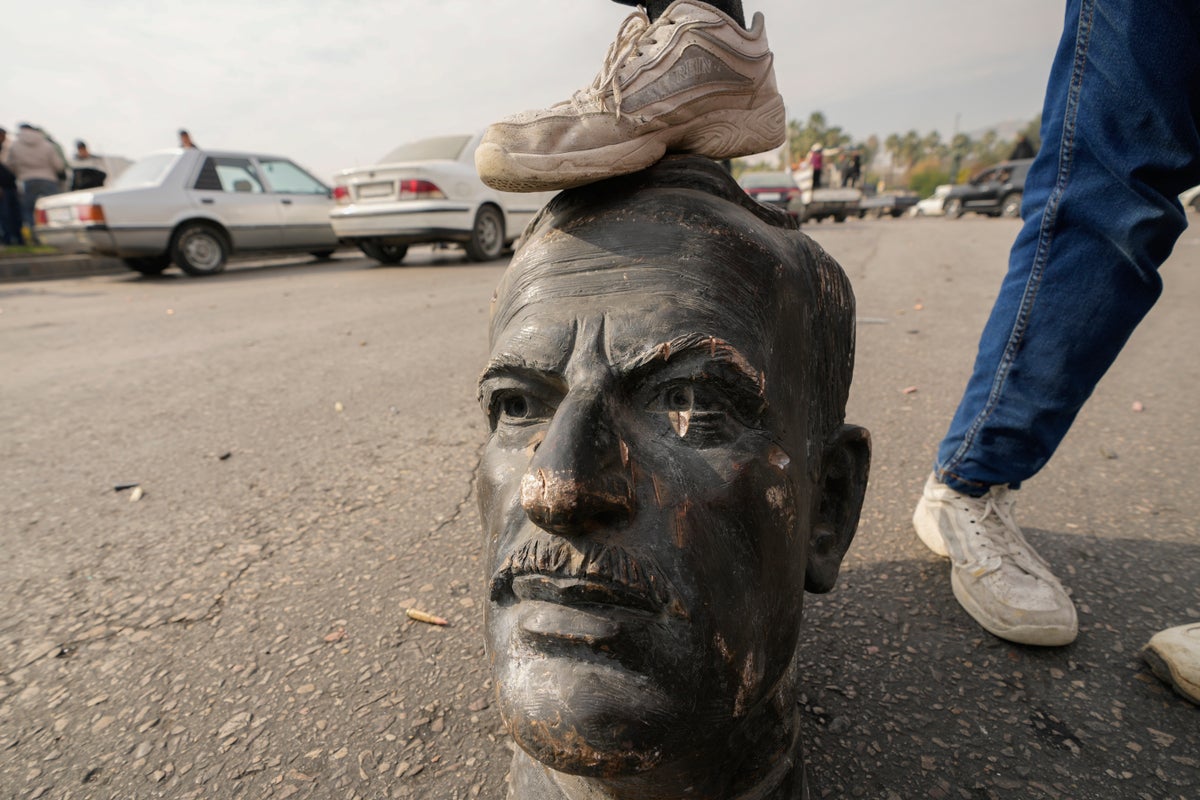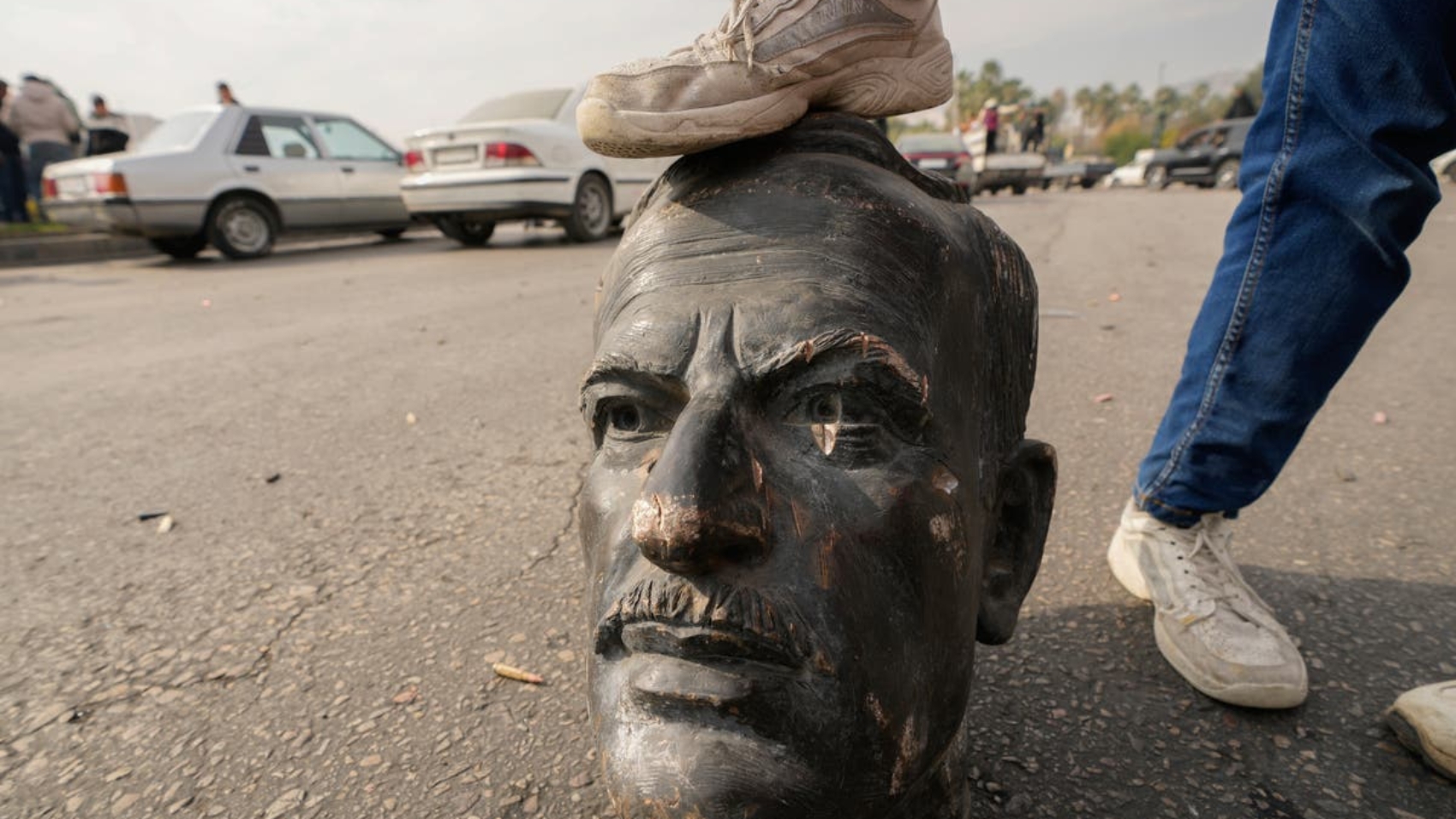
Your assist helps us to inform the story
From reproductive rights to local weather change to Large Tech, The Unbiased is on the bottom when the story is creating. Whether or not it is investigating the financials of Elon Musk’s pro-Trump PAC or producing our newest documentary, ‘The A Phrase’, which shines a lightweight on the American girls preventing for reproductive rights, we all know how essential it’s to parse out the information from the messaging.
At such a crucial second in US historical past, we’d like reporters on the bottom. Your donation permits us to maintain sending journalists to talk to each side of the story.
The Unbiased is trusted by Individuals throughout your complete political spectrum. And in contrast to many different high quality information shops, we select to not lock Individuals out of our reporting and evaluation with paywalls. We imagine high quality journalism needs to be accessible to everybody, paid for by those that can afford it.
Your assist makes all of the distinction.
For the primary time in 50 years, the query of how Syria might be ruled is huge open. The tip of the Assad household’s rule is for a lot of Syrians a second of blended pleasure and worry, of the overall unknown.
The insurgency that swept President Bashar Assad out of energy is rooted in Islamist jihadi fighters. Its chief says he has renounced his previous ties to al-Qaida, and he has gone out of his technique to assert a imaginative and prescient of making a pluralistic Syria ruled by civil establishments — not dictators and never ideology.
However even when he’s honest, he isn’t the one participant. The insurgency is made up of a number of factions, and the nation is riven amongst armed teams, together with U.S.-backed Kurdish fighters controlling the east. Remnants of the previous regime’s navy – and its feared safety and intelligence companies – can coalesce as soon as once more.
International powers with their very own pursuits have their fingers deep within the nation, and any of them — Russia, Iran, Turkey, america and Israel — may act as spoilers.
Syria’s multifaith and multiethnic inhabitants sees itself poised on a second that might tip both into chaos or cohesion. The nation’s Sunni Muslims, Shiite Alawites, Christians and ethnic Kurds have usually been pitted towards every, whether or not by Assad’s rule or the 14-year civil battle. Divisions from the battle run deep, and lots of fear about revenge killings, whether or not towards former figures of Assad’s state or — extra horrifying — entire communities seen as backing the previous system.
The civil battle displaced half of Syria’s prewar inhabitants of 23 million, and lots of who fled are watching developments intently to find out whether or not the time has come to return.
Proper now there are solely questions.
How will Syria be ruled?
Within the brief interval following Assad’s abrupt fall, insurgent chief Ahmad al-Sharaa, previously referred to as Abu Mohammed al-Golani, has sought to reassure Syrians that the group he leads — Hayat Tahrir al-Sham, or HTS – doesn’t search to dominate the nation and can proceed authorities companies. He has spoken of organising a decentralized governance system.
Authorities officers who remained in Damascus as Assad fled — together with Prime Minister Mohammed Ghazi Jalali — have met with the rebels to debate the switch of energy.
The Al Jazeera tv community reported Monday that HTS had determined to nominate the top of the “salvation authorities” operating its stronghold in northwest Syria, Mohammed Al-Bashir, to kind a transitional authorities. There was no official affirmation.
Particulars on what kind the federal government will take have been scarce.
The rebels seemingly didn’t count on to be saddled with operating a whole nation once they launched their offensive towards Aleppo lower than two weeks in the past, mentioned Qutaiba Idlbi, a senior fellow on the Atlantic Council’s Rafik Hariri Middle and Center East Packages. The fast fall of Damascus and the melting away of police and navy, left safety challenges, he mentioned.
The one current framework for a transition is now not related. U.N. Safety Council Decision 2254 had referred to as for a political course of involving each Assad’s authorities and opposition teams.
“Everybody’s saying, particularly rebels on the bottom, ‘That framework is now not relevant, as a result of there isn’t a longer a regime. We’re not going to present the regime in politics what they misplaced by means of navy means,’” Idlbi mentioned.
Thus far, public sector staff haven’t heeded calls from the caretaker prime minister to return to their jobs — inflicting troubles in locations like airports, borders and on the International Ministry, mentioned Adam Abdelmoula, the U.N.’s humanitarian coordinator for Syria.
“I believe it’s going to take a few days — and a whole lot of assurance on the a part of the armed teams — for these individuals to return to work once more,” he mentioned. Within the present chaos, U.N. staff have had problem accessing the nation, and that has hampered distribution of humanitarian assist, he mentioned.
How inclusive will the insurgents be?
The insurgents have sought to reassure Syria’s non secular minorities that they won’t be focused, regardless of HTS’ fundamentalist Sunni Muslim origins.
Thus far the civil peace appears to be holding. The insurgents have appeared disciplined, working to maintain order, with no signal of reprisals. Specialists say solely time will inform what post-Assad Syria will seem like.
“Everybody’s nonetheless prepared to actually have interaction, actually work with others,” mentioned Haid Haid, a consulting fellow on the Center East and North Africa program of Chatham Home. “That kind of constructive environment is essential, but it surely may not final lengthy.”
Splits may open as choices are made.
It could’t be assured all of the fighters throughout the HTS will again al-Sharaa’s speak of a pluralist system. Outdoors Damascus’ historic Hamadiyeh market on Sunday, round a dozen fighters chanted, “Down, down with a secular state” — an indication that no less than some among the many insurgents might search a tougher Islamist line.
“The opposition just isn’t a homogenous motion,” mentioned Burcu Ozcelik, a senior analysis fellow for Center East Safety on the Royal United Companies Institute assume tank in London.
There are a number of armed opposition teams, together with forces within the south who’re distinct from HTS and the Turkish-backed teams within the north. Inside fractures throughout the HTS-led motion, “which can develop into extra salient within the weeks and months to return, might result in discord and threaten Syrian stability,” Ozcelik mentioned.
There could also be stress to purge former members of Assad’s giant state paperwork, particularly these employed as a part of an unlimited safety state that included informers and officers extensively hated for torture, abuses and corruption.
Insurgents and lots of within the public don’t need them to return. However a purge can spark a destabilizing backlash — as when U.S. directors disbanded Iraq’s military after Saddam Hussein’s fall in 2003, fueling a Sunni insurgency.
Syria’s Alawite inhabitants is feeling significantly susceptible. Assad and his household have been Alawites — a department of Shia Islam — and lots of among the many Sunni insurgents see the group as his loyalists.
The query of the Kurds looms giant
Kurdish-led forces allied with america have run a semi-autonomous zone in Syria’s northeast for years, the place they’ve been a key participant within the battle towards the Islamic State militant group. Whereas each have been opponents of the federal government in the course of the civil battle, the connection between the Kurds and the Arab opposition teams is tense.
HTS has been extending an olive department to the Kurds. Reintegrating the east would seemingly imply some type of concession to Kurdish autonomy.
However that dangers angering neighboring Turkey, which vehemently opposes the Kurdish factions that run Syria’s east. Already, Turkish-backed insurgents allied with HTS have taken the chance to push the Kurds out of some pockets of territory, seizing the northern city of Manbij, and clashes have damaged out in different areas.
Whereas the insurgents’ largely benign method to minorities to this point has allayed many worldwide worries, Abdelmoula mentioned, “these pockets of preventing are very vital as a result of the preventing is generally alongside ethnic strains. And that’s harmful.”
———
Related Press writers Danica Kirka in London and Jamey Keaten in Geneva contributed to this report. Keath reported from Cairo.
#lengthy #street #forward #resolve #Syrias #future #fast #Assads #rule
The Unbiased
#lengthy #street #forward #resolve #Syrias #future #fast #Assads #rule
Lee Keath and Abby Sewell , 2024-12-09 20:04:00


